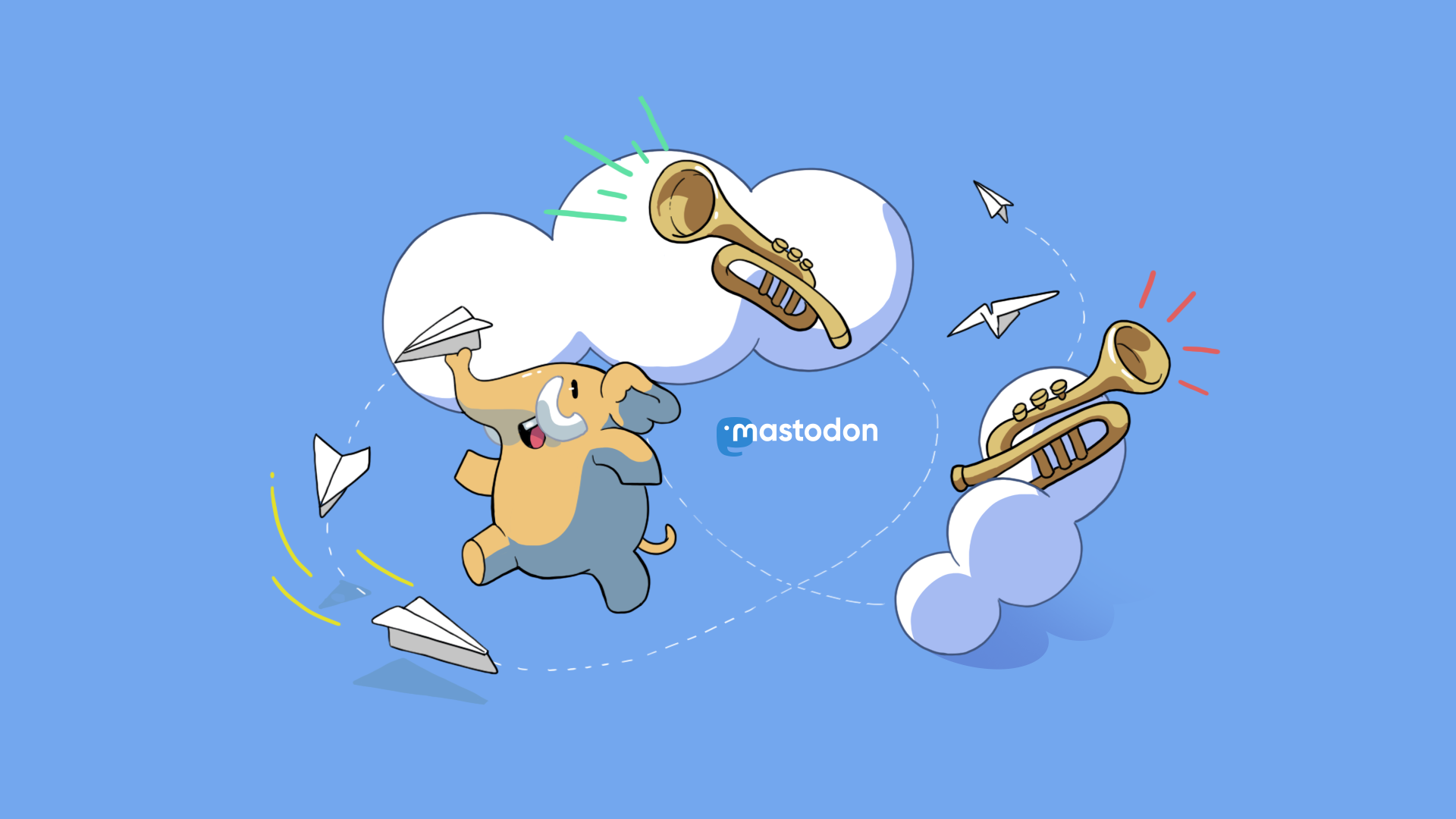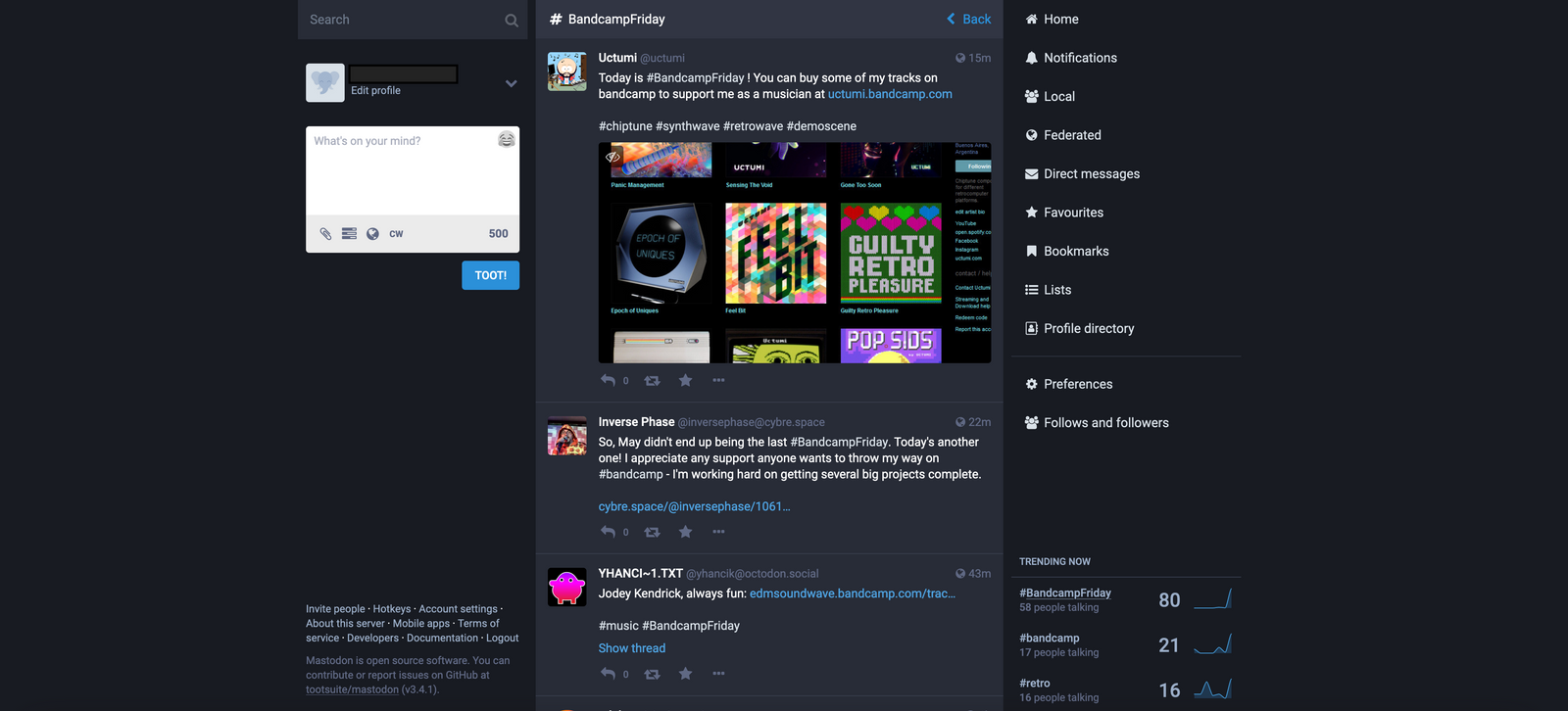What is Mastodon and how does it work?
Mastodon is a decentralized social network and one of the best Twitter alternatives you can use right now

Twitter is one of the best-known social networking sites in the world. But it isn't without problems. In recent years, the company has faced allegations of censorship, seemingly allowing and even condoning harassment, spreading fake news, and creating a hostile environment.
The problems facing the social network are, at least in part, due to centralization. In theory, a decentralized social network could be the key to creating a more transparent Twitter alternative. Fortunately, there is a decentralized social network you can try right now; Mastodon.
What is Mastodon?

Mastodon is not principally a social network — it is an open-source development that allows anyone to start up their own Twitter-style social experience. This is the basis for Mastodon's decentralization. Rather than having the company control all of the data, as with Twitter, it is shared across many individual Mastodon servers. These are hosted worldwide and have unique rules and codes of conduct.
Twitter's strength is that anyone from around the world can join in with a conversation or follow an event, so having individual servers may seem to limit Mastodon's potential.
However, the service is part of the Fediverse, a collection of integrated open-source social networks which communicate with one another. Users can interact with people on other Mastodon servers and even on entirely different social networks, all from one account.
Twitter offers just a single timeline, whereas Mastodon has three; Home, Local, and Federated. The Home feed shows content from people you follow, the Local timeline shows all activity in your server, and the Federated option shows content from across the entire Fediverse.
This approach means that you can stay within the confines of your chosen server, interact with the people you follow, or check out what's going on globally too—but you don't have to.
It can be hard to ignore specific topics on Twitter, even if you use the mute word options. If you join a Mastodon server that, say, limits political discussions, then you won't have your feed jammed with politics. But, head to the Federated timeline, and you can still keep up with the latest developments.
Unfortunately, your Twitter data is not portable. If you choose to leave the network, you also leave your digital profile, which may have many years of history, relationships, and authority. Conversely, Mastodon makes data portability a breeze.
Don't like the server you're on or want a change? Just head to your profile settings and export the data. Once you're set up on a new server, importing your account data takes only a few seconds.
How to use Mastodon
There was no official Mastodon smartphone app for many years, so you had to rely on third-party apps.
However, at the end of July 2021, the company launched an official Mastodon for iPhone app for devices running Apple's operating system. If you're using an Android smartphone, you can install a third-party option like Tusky. The network is available through any web browser, and there are several desktop apps, as well.
When you sign up for the service, you need to select a server. The most popular is mastodon.social, which is run by the development team. However, countless others cater to a range of interests and regions. But whichever you choose, you'll be able to follow, chat to, and interact with people on other servers, too.
Mastodon is often referred to as a decentralized service, and it is, to some degree. It's important to remember that anyone can host a server, and the owner has access to your data and can police interactions on their server. The critical difference between Mastodon and Twitter is the range of servers and data portability.
If you opt for a third-party app, some of them even allow you to access other Fediverse networks like Diaspora, PixelFed, PeerTube, or NextCloud.
Time to join Mastodon?
There is a growing distrust of mainstream social networks like Facebook and Twitter. Both platforms have been accused of manipulating users in the quest for ever-increasing growth and profits. This distrust is causing users to look elsewhere.
We're seeing the same dynamic play out in search too, with Google increasingly flooding your searches with low quality ads, which is why some people are making the switch from Google to Brave Search.
Decentralized networks, like Mastodon, are well-placed to overcome these hurdles. However, it could still be vulnerable to some of the same issues that have plagued Twitter. But, for now, Mastodon is one of the best Twitter alternatives available today.

